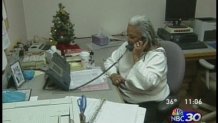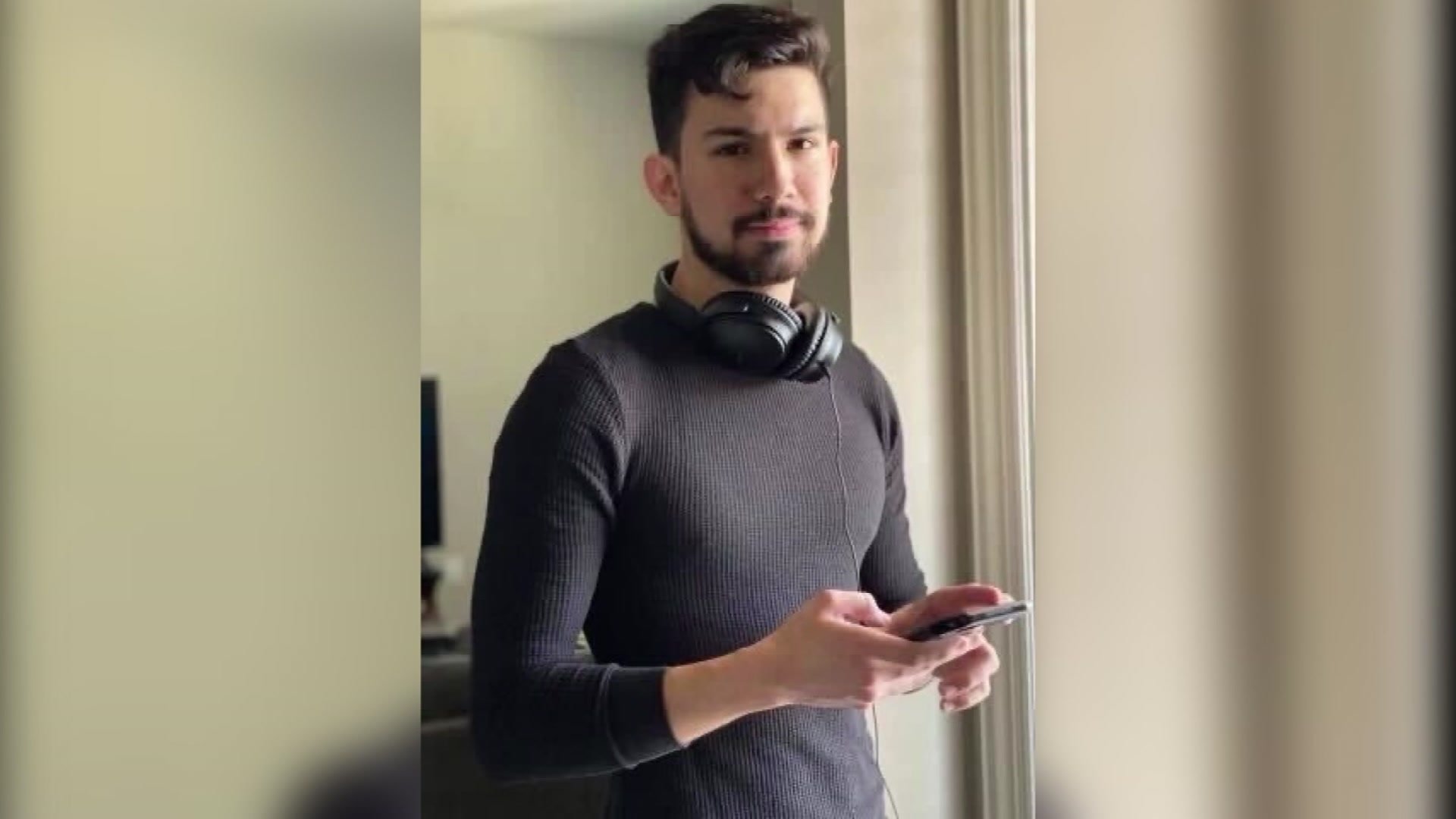When Paul Unger joined the Fort Worth Symphony Orchestra 20 years ago as the the assistant principal double bass, he was excited about the future of the organization.

“I was struck by how the conductor, president and board were on the same page. Everything was growing and the artistic opportunities and support was amazing,” Unger said.
Since 2010, the orchestra has struggled financially, but Unger’s concerns about the orchestra’s future have multiplied during the year-long musicians’ contract negotiation. Unger said he wants the next generation of musicians to have the same opportunity to build a professional musical career in his adopted city.
Unger's background
Unger, an Oregon native, first picked up the double bass later than most professional musicians. In high school he started with the electric bass, playing in the jazz band. At age 16, he noticed an acoustic bass sitting in the corner and decided to give it a try.
It was love at first pluck.
Local
The latest news from around North Texas.
While he primarily focused on jazz, he joined the Portland Youth Philharmonic and found himself playing catch-up with young musicians who had been playing and studying music since elementary school.
After graduating from Indiana University, Unger’s musical education continued at New World Symphony, a training orchestra in Miami that prepares top music students from the best schools for their professional music careers.
For two and half years, Unger developed his skills and eventually won an audition at the Fort Worth Symphony Orchestra.
Since arriving in Fort Worth, Unger has built an impressive resume. A bassist and composer, he has been a featured soloist with the Fort Worth/Dallas Ballet, the Mount Vernon Chamber Music Players, the Mimir Chamber Music Festival, and of course, the Fort Worth Symphony Orchestra.
He leads Flipside, a jazz group that Cadence magazine calls “contemporary jazz at its best.” He currently performs with internationally recognized singer Suzi Stern and has performed with Bobby Shew, Bob Newhart, Bernadette Peters, Jay Clayton and Andrea Bocelli.
Unger invented the 5-bass which is a 5-string bass tuned in fifths. The instrument allows him to play cello and violin-like passages on the double bass.
Unger’s career is a model of a professional musician’s life at a destination orchestra. He met his wife in Dallas and together they have built a life in North Texas. Like many other orchestra members, he has taught students.
From 2005-2007, Unger was a double bass instructor at Texas Christian University.
“Most people teach because they love music and they want to pass it along to the next generation,” Unger said.
Rigorous Schedule
Musicians, like professional athletes, must train extensively to keep their skills sharp.
“Typically we work six days a week, Tuesday through Sunday. To maintain proficiency, I practice two to four hours a day, plus a workout and exercise routine to stay in physical shape. Often we have to play two to four programs a week, and simultaneously be preparing for the next week’s programs,” Unger said.
“I calculated once that I have spent upwards of 30 to 60 hours preparing music (practicing, studying the music, and preparing my instrument) for one week’s worth of work. Naturally, some weeks are busier than others,” he added.
Trouble Brews at the Fort Worth Symphony Orchestra
Trouble at Fort Worth Symphony Orchestra began in 2010 when the musicians, represented by the American Federation of Musicians Local 72-147, agreed to take a 13.5 percent pay cut to assist the orchestra as it dealt with recessionary pressures.
The orchestra’s management reassured the musicians this was part of a two-fold plan of expense cuts and new revenue creation.
Despite experiencing 14 percent growth in ticket sales and seven percent growth in contributions from individuals last season, the fundraising and marketing efforts have not been able overcome what Amy Adkins, the Fort Worth Symphony Orchestra Association President and CEO, describes as “deficits caused by external factors beyond the organization’s control.”
Adkins said the organization is projecting a deficit of nearly $700,000 and an emergency fund will cover that deficit. The concern is that the emergency fund will not be able to cover future deficits. As a result, the Fort Worth Symphony Orchestra Association is proposing an 8.7 percent cut in wages.
In June 2015, the Fort Worth Symphony Orchestra Association and the musicians’ union began negotiations, but have not been able to reach an agreement.
Both sides are currently participating in federal mediation in hopes that an agreement can be reached before the current musicians’ contract expires on July 31.
“The best outcome would be that an agreement is reached that provides financial sustainability for the organization so that the Fort Worth Symphony Orchestra can continue to provide our wonderful city a top-tier arts and cultural experience,” Adkins said.
Providing Fort Worth a top-tier arts and cultural experience is the primary reason Unger said the musicians will not accept another pay cut.
The musicians want management to take a more progressive approach to growing the orchestra and its endowment to attract a new generation of talented musicians.
Unger said he is frustrated the orchestra’s strategic planning committee has not met in over a year, the management team will not share their fundraising plans, and the orchestra has not launched an endowment campaign since 2000.
He said management is focused on cutting costs while not raising funds and as a result, the orchestra is sacrificing talent.
“We need to keep Fort Worth Symphony Orchestra a destination orchestra, not a pass-through orchestra,” Unger said.
He pointed out that when musicians settle in a city, there is often a ripple effect of economic impact and charitable giving that enriches the cultural well-being of Fort Worth.
If the orchestra cannot offer a competitive salary and benefits package, younger musicians will continue looking for other audition opportunities, he said.
Unger said winning an audition at a professional orchestra is a difficult and competitive process, but finding a more lucrative opportunity is not hard.
A Dallas Symphony Orchestra musician plays 20 percent fewer concerts but is paid $42,000 a year more than a Fort Worth Symphony Orchestra musician.
Orchestras in Dallas, San Antonio, Atlanta, Detroit, Grand Rapids, Buffalo, Chicago and Kansas City have negotiated progressive musician contracts since 2015. Under management’s proposal, a Fort Worth Symphony Orchestra musician will make $20,000 less than the national average.
Several younger musicians have already left Fort Worth Symphony Orchestra before becoming rooted in the community. Many young musicians overlook Fort Worth Symphony Orchestra when they learn of the orchestra’s financial instability.
“These salary cuts send a message that the culture of Fort Worth is in decline,” Unger said.
Experienced musicians are also affected by this proposed pay cut. Unger is alarmed to watch his experienced colleagues retire at twice the rate of the previous decade.
Since 2010, musicians have been taking two or three jobs to make ends meet, resulting in injuries. Unger claims half the orchestra plays injured and members are concerned the quality of the orchestra is diminishing.
Professional orchestras offer physical recovery weeks. Industry standard is six weeks, the Dallas Symphony Orchestra offers nine weeks, but the Fort Worth Symphony Orchestra only offers three weeks and does not offer disability benefits.
The loss of experienced musicians impacts the Fort Worth Ballet, the Fort Worth Opera, and the Van Cliburn International Piano Competition as those organizations depend on experienced musicians to skillfully accompany their work. Many experienced musicians leave the orchestra disillusioned.
Unger is still hopeful a fair and progressive musicians’ agreement can be reached and funds can be raised to support the orchestra, “I believe in the community of Fort Worth. This is the place to be.”
Another mediation meeting is planned for July 29.



